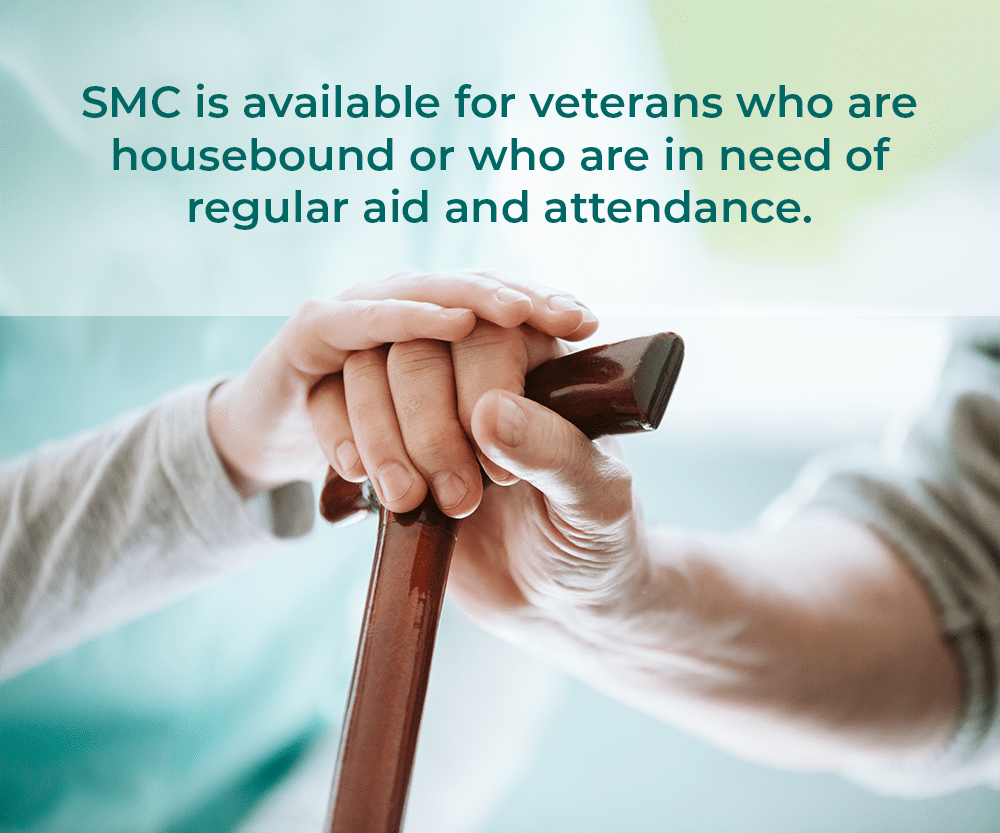Special Monthly Compensation (SMC) is a benefit paid in addition to regular VA disability compensation for veterans with certain severe disabilities or combinations of disabilities. For veterans suffering from Parkinson’s disease, SMC can provide crucial financial support that acknowledges the unique challenges and care requirements associated with this progressive neurological condition.
Unlike standard VA disability compensation, which is primarily based on the percentage of disability, SMC recognizes that some disabilities create circumstances that go beyond what the regular schedule for rating disabilities can accommodate. For Parkinson’s patients, this is particularly relevant as the disease often leads to multiple impairments that significantly impact quality of life and independence.
Because of the debilitating and rapidly progressive nature of the disease, veterans with Parkinson’s should make sure to check and see if they qualify for individual unemployability (IU) and for special monthly compensation (SMC). SMC and IU are avenues for receiving a higher amount of compensation for your service-connected conditions.
Care Needs Associated with Parkinson’s
Parkinson’s disease is chronic and slowly progressive, eventually affecting your ability to perform activities of daily living. There are 5 basic categories of daily activities. These are:
- Personal hygiene: bathing, grooming, and oral care
- Dressing: the ability to make appropriate clothing choices and physically dress yourself
- Eating: the ability to feed yourself
- Maintaining continence: the mental and physical ability to use the bathroom
- Transferring: the ability to move yourself from seated to standing, and getting in and out of bed.
Now, let’s look at the stages of Parkinson’s and how the impact each stage has on the care needs of a veteran.
- Stages 1 & 2: Early stage or mild Parkinson’s disease is characterized by tremors and mild changes to your gait and posture. Typically, medication can control these symptoms and an individual would be able to continue managing their own activities of daily living.
- Stage 3: With moderate Parkinson’s disease, balance issues start to appeal and occasional “freezes” (a spontaneous loss of mobility) may occur. Individuals are still able to complete activities of daily living without assistance, but at a slower pace than someone of their same age without the condition.
- Stage 4 & 5: Once Parkinson’s disease progresses to the later or advanced stages, assistance with care and activities of daily living becomes essential.
Eligibility for VA Special Monthly Compensation
Veterans with Parkinson’s disease may qualify for SMC when the condition results in:
- Loss, or loss of use, of a foot or hand: Available when no effective function remains (i.e., inability to grasp or manipulate objects) due to Parkinson’s tremors or rigidity
- Loss of use of both buttocks: Exists when there is severe damage to the buttocks muscles bilaterally, and an additional disability makes it impossible to rise from a seated position and maintain stable posture
- Loss of ability to speak: This is available for veterans who have a disability of the organs of speech that constantly prevents communication by speech, which can occur in advanced Parkinson’s
- Housebound status: Available for veterans with one disability rated at 100% and an additional disability rated at 60% (or additional disabilities that have a combined rating of 60%)
- Regular Aid & Attendance and permanently bedridden: Available for veterans who need regular aid and attendance to perform the personal functions of daily living
The key factor in determining eligibility is not just having a Parkinson’s diagnosis, but rather how the disease affects the veteran’s ability to function independently and perform activities of daily living.
Is There a Minimum Percent Disability Requirement?
There is no specific minimum percentage required for SMC eligibility; instead, eligibility depends on the specific category of SMC being sought and the nature of the impairments. For example, SMC-S (housebound) requires one disability rated at 100% plus additional disabilities totaling 60% or more, while SMC-L (aid and attendance) doesn’t have a percentage requirement but instead focuses on the need for assistance with daily activities.
Types of Special Monthly Compensation for Parkinson’s
The VA recognizes multiple levels of SMC, designated by letters (S, L, M, N, O, P, R, etc.). Veterans with Parkinson’s disease may qualify for the following SMC levels.
- SMC-S: For veterans who are housebound due to their Parkinson’s symptoms
- SMC-L: For veterans requiring aid and attendance
- SMC-M through SMC-O: For veterans who have lost the use of certain extremities due to Parkinson’s
- SMC-R: For veterans requiring a higher level of aid and attendance
SMC-L and L 1/2: Aid and Attendance
SMC-L is particularly relevant for veterans with advanced Parkinson’s who require help with basic activities of daily living such as bathing, dressing, feeding, or using the bathroom. To qualify for this level, the veteran must show that they:
- Need regular assistance with daily activities
- Would be institutionalized without such assistance
- Have significant impairments that necessitate help from others
Level L 1/2 (often written as SMC-L+) applies when a veteran meets the criteria for SMC-L and also has additional disabilities independently rated at 50% or more.
Loss of Use of Extremities and Its Impact on SMC Level
Many veterans with advanced Parkinson’s disease experience loss of use of extremities due to tremors, rigidity, or bradykinesia (slowness of movement). The VA defines “loss of use” as a condition where no effective function remains other than what would be equally well served by an amputation with prosthesis.
For Parkinson’s patients, this can apply when:
- Tremors are so severe that hands cannot be used for fine motor tasks
- Rigidity prevents effective use of arms or legs
- Balance issues effectively prevent safe walking
Depending on which extremities are affected, veterans may qualify for higher SMC levels such as SMC-M (loss of use of one hand and one foot), SMC-N (loss of use of both legs), or SMC-O (combination of several severe impairments).
How to Claim Special Monthly Compensation
File a Claim for SMC Related to Parkinson’s
- File VA Form 21-526EZ or submit a supplemental claim online
- Use VA Form 21-2680 to apply for Aid and Attendance benefits, if applicable
Documentation and Evidence Required
- Detailed medical records documenting your Parkinson’s diagnosis and progression
- Neurologist reports specifically addressing functional limitations
- Activities of Daily Living assessments showing the need for assistance
- Statements from caregivers describing the care they provide
- Documentation of falls or injuries resulting from Parkinson’s symptoms
- Medication lists and side effects that impact daily functioning
Address VA Denials
If your SMC claim is denied, you should appeal the decision as quickly as possible and submit additional evidence specifically addressing the reason for denial. Consider seeking representation from a Veterans Service Organization, accredited agent, or attorney specializing in VA disability claims. You can get a free evaluation of your case here.
Getting Maximum Benefits
As the Parkinson’s disease progresses, veterans should seek higher levels of Special Monthly Compensation. They may also be eligible for the following VA programs and grants.
- Adaptive Housing Grants: For home modifications to accommodate mobility limitations
- Automobile Allowance: For purchasing a vehicle that can be adapted for disabilities
- VA Caregiver Support Program: Providing resources and potential stipends for family caregivers
- VA Home Health Care: Including nursing, physical therapy, and occupational therapy services
- VA Respite Care: Offering temporary relief for primary caregivers
- VA Palliative Care: For advanced stages of the disease
The extra care required for Parkinson’s disease patients is often very expensive. Veterans can greatly benefit from Special Monthly Compensation, VA programs and appropriate ratings for all residual effects of the disease. Our team will help point you in the right direction.




